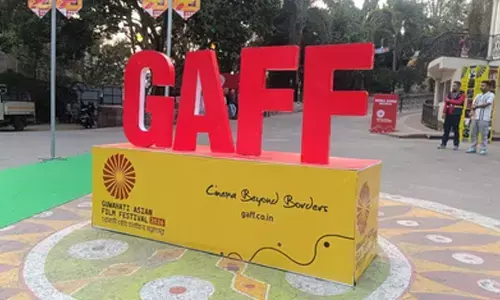The case of a missing file

The case of a missing file. In a case involving 20 bighas worth over Rs 100 crore, revenue officials did not act on the complaint of an appellant for a file which may prove ownership of his father over the land.
In a case involving 20 bighas worth over Rs 100 crore, revenue officials did not act on the complaint of an appellant for a file which may prove ownership of his father over the land. The officials merely responded that the file was missing, and did not respect the orders of CIC and the First Appellate Authority. The PIO says he instructed the subordinate staff to trace the missing file. But nothing was done to reconstruct the file. The explanation of PIO was not satisfactory on the aspect of not lodging FIR or in regard to construction of an alternative file.

Filing FIR in police station may not serve the purpose of tracing the file and it may not be possible for the police to search for a file which the revenue officers could not trace. Still, the FIR will be useful for the police to inquire if there is any fraud behind the loss of file. In spite of specific orders to write to the Station House Officer, the PIO ignored them. Hesitation to complain to the police gives rise to grave suspicion of fraud. The Commission ordered maximum penalty on the successive PIOs. A show-cause notice was also issued for non-compliance of the CIC order of 2012
The land is worth over Rs 100 crore; one of joint Bhoomidars claimed he was the absolute owner as the other surrendered his right. When the other asked for a copy of so-called ‘surrender’ letter, the revenue officers are claiming that ‘file is missing.’ Can we believe that missing file was a possible accident? Is the suspicion of appellant that it was deliberately caused to be ‘missing’ is correct? The core area of duty of the revenue department is to secure land records.
Revenue trial court has to preserve records with great care. What is the remedy?
A complaint is filed against not implementing the orders of the First Appellate Authority and directions of the CIC. Disorganisation in maintenance of files, reluctance to respond and defiance of orders of the authority reflect the anti-disclosure attitude. It all began with the refusal of accepting the RTI application of Harish Kumar Tyagi, the appellant. There is no response to the complaint. He was not even informed who the first appellate authority is. The CIC ordered disclosure of information within one week, which was also not implemented.
Then the appellant filed another complaint saying the CIC order given in 2012 was not implemented. The Commissioners changed over a period of time. But the PIO’s attitude remained the same. When the case came again in 2014, the Commission recommended disciplinary proceedings against the PIO functioning during 2012 and the present PIO for their non-response to the RTI application and negligence in complying with the orders of CIC and the First Appellate Authority (FAA), besides issuing a show-cause notice for non compliance of CIC order of 2012.
Explanation of one of the PIOs was disputed by the appellant strongly. The PIO says he instructed the subordinate staff to trace the missing file. But nothing was done. He informed the appellant on 01.12.2014 that lodging of FIR is ‘under active consideration. The appellant was never informed about lodging of FIR or was not given the certified copy of FIR, because it was not done. Nothing was done to reconstruct the file. On 20.4.2015, the Commission directed again the respondent authority to trace the missing file or reconstruct the record and submit an action taken report, within 45 days of receipt of this order.
The present case is adjourned and penalty proceedings are to continue. The appellant was asking about the order in 2010 passed by Revenue Assistant/SDM, Civil Lines, in the case of Ramphal & others vs. Gram Sabha Kamalpur Majra, Burari. The appellant says his father was a joint bhoomidar with Ramphal. He alleged that the revenue authorities joined hands with Ramphal to put forward a claim that his father surrendered the position of bhoomidar on 03.06.1977 in favour of Ramphal. The appellant was seeking a certified copy of the same, which was not furnished.
The appellant needs to cross-examine the witness before the revenue court, where Ramphal is claiming to be the absolute owner. Since 2012 January, the appellant has been waiting for the information. Claim of missing file is the defence repeatedly put forward only to deny the information by the PIO of the public authority. Neither the RTI Act nor the Public Records Act recognised missing file as a defence or exception for denial of information.
If such important orders or records of land revenue are missing, it will be difficult to ascertain and defend the right of ownership of the land. Missing of file in the revenue office will have a very serious impact not only on land disputes but also on land order issues. The appellant says he needs this information to counter the contention made by Ramphal and others making adverse claim against him. The officers of the public authority are neither lodging an FIR nor providing copy of information sought to the appellant in spite of several show-cause notices from the authorities under the RTI Act.
The explanation of PIO is not satisfactory on the aspect of not lodging FIR or in regard to construction of alternative file. Without this, the claim of appellant over land cannot be proved. With all aspects of bad governance, this case appears to be a fit case to impose maximum penalty on the PIO. The PIO not only defied the order of the CIC but also did not respond to the show-cause notice. The Ex-PIO has submitted explanation stating that he made efforts to trace the file, but failed. He also mentioned that he did his best to lodge the FIR, but it could not be lodged.
He did not say whether the lodging of FIR was not done before he relinquished charge of SDM (CL) before his retirement on 31.10.2014. FAA ordered him on 19.12.2012 to trace the file, and if file was not traceable, to lodge an FIR. The order was with him since 19.12.2012 to 31.10.2014. It’s a case of inaction. He was ordered to be careful in future. Though superior officers ordered him to trace the file, he did nothing. Filing FIR in police station may not serve the purpose of tracing the file and it may not be possible for the police to search for a file which the revenue officers could not trace.
Still, the FIR will be useful for the police to enquire if there is any fraud behind the loss of file. In spite of specific orders to write to the Station House Officer, the PIO ignored. There was no effort to contact various resources wherefrom the letters came to get photostat copies to construct an alternative file. The file lost is about the land of the appellant to the extent of 20 bighas. They estimate that the cost would be more than Rs 100 crore. The record was lost from the revenue trial court.
The ‘missing of file’ could be a deliberate strategy of some persons with ‘responsible’ powers. If it was an accidental missing, nothing prevented the officer from taking quick action like filing FIR or reconstructing file. Hesitation to complain to the police gives rise to grave suspicion of fraud. Two successive PIOs, SDM (RDM) are responsible for abdication of duties and deserve to be penalised with maximum penalty. The Commission imposed a penalty of Rs 25,000 each against these two officers. (Based on decision in Harish Kumar Tyagi v SDM File No.CIC/AD/C/2013/001003-SA).














